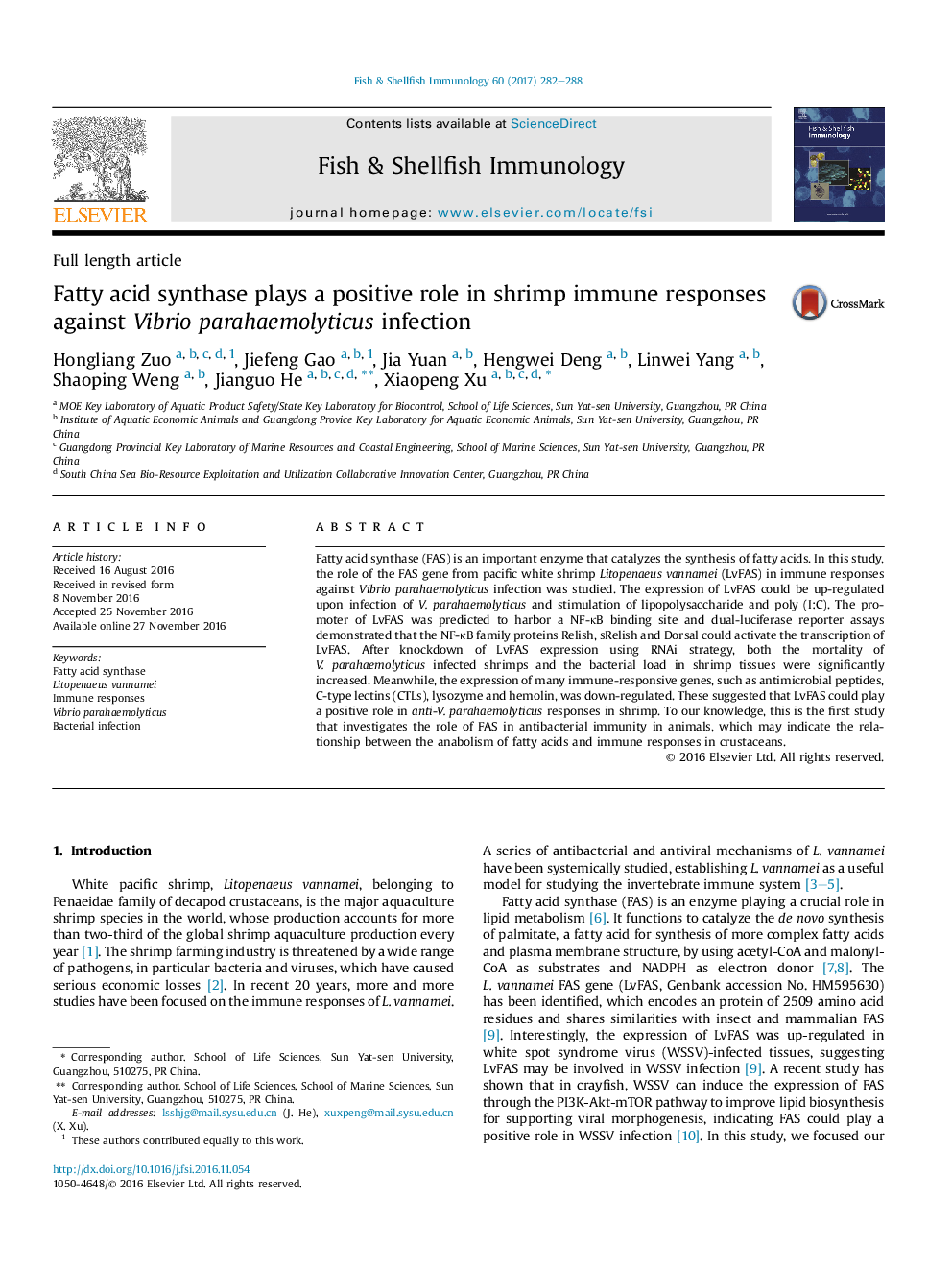| Article ID | Journal | Published Year | Pages | File Type |
|---|---|---|---|---|
| 5540985 | Fish & Shellfish Immunology | 2017 | 7 Pages |
Abstract
Fatty acid synthase (FAS) is an important enzyme that catalyzes the synthesis of fatty acids. In this study, the role of the FAS gene from pacific white shrimp Litopenaeus vannamei (LvFAS) in immune responses against Vibrio parahaemolyticus infection was studied. The expression of LvFAS could be up-regulated upon infection of V. parahaemolyticus and stimulation of lipopolysaccharide and poly (I:C). The promoter of LvFAS was predicted to harbor a NF-κB binding site and dual-luciferase reporter assays demonstrated that the NF-κB family proteins Relish, sRelish and Dorsal could activate the transcription of LvFAS. After knockdown of LvFAS expression using RNAi strategy, both the mortality of V. parahaemolyticus infected shrimps and the bacterial load in shrimp tissues were significantly increased. Meanwhile, the expression of many immune-responsive genes, such as antimicrobial peptides, C-type lectins (CTLs), lysozyme and hemolin, was down-regulated. These suggested that LvFAS could play a positive role in anti-V. parahaemolyticus responses in shrimp. To our knowledge, this is the first study that investigates the role of FAS in antibacterial immunity in animals, which may indicate the relationship between the anabolism of fatty acids and immune responses in crustaceans.
Keywords
Related Topics
Life Sciences
Agricultural and Biological Sciences
Aquatic Science
Authors
Hongliang Zuo, Jiefeng Gao, Jia Yuan, Hengwei Deng, Linwei Yang, Shaoping Weng, Jianguo He, Xiaopeng Xu,
